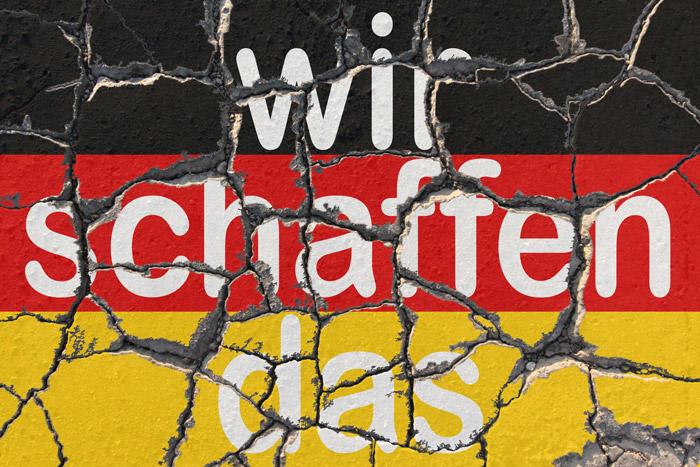Germany faces the political and social challenges of migration.

In 2015, German Chancellor Angela Merkel announced she would open borders to refugees, especially to those fleeing the war in Syria. This act immediately created a new reputation for Germany as being Europe’s most welcoming country. But sometimes well-meaning policies collide with realities on the ground. WCFIA Visiting Scholar Gökce Yurdakul and coauthor Hartmut Koenitz examine the political pressures that have challenged—and even warped—Merkel’s progressive goals toward migrants.
By Gökce Yurdakul and Hartmut Koenitz
The immigration politics of Angela Merkel is a sensitive issue in our household. I told my partner Hartmut that we should write about Angela Merkel’s immigration and gender politics in time for her commencement speech at Harvard, and his reply was a curt “have fun.”
I, Gökce, came to Germany as a Turkish immigrant a decade ago, and for immigrants like me, Merkel has been a symbol of encouragement. Her famous words “Wir schaffen das!” or “We can do it!” (similar to Obama’s “Yes, we can!”) illustrated the legacy of Merkel’s political office in one message: “Welcome to Germany; we will accommodate you.” Her statements felt like a green light for many of us immigrants, and showed more acceptance than migrants to Germany had seen in the last fifty-five years, ever since Germany’s guest worker agreements with Turkey and other southern European and North African countries1 sparked a wave of migration to Germany after World War II.
My partner, Hartmut, on the other hand, takes an entirely different view. Whenever Angela Merkel’s politics is the topic of discussion in our home, he explains how for many Germans of his generation—people who were born in the 1970s in Germany—Merkel mostly represents a standstill, an extension of her mentor Helmut Kohl’s quest to keeping the status quo. In German media and politics, Merkel has been notoriously criticized in the past for her politics of Aussitzen (meaning “sitting out,” or stoically waiting for challenges to pass) as opposed to making fundamental changes, such as in the reform years of the Social Democratic and Green Party coalition (1998–2005) before her term.
But I don’t see stagnation in Merkel’s migration policy; I believe she has steered Germany in a more progressive direction. How do we explain our vastly different interpretations of Merkel’s politics?... Read more about We Can Do It! (Or Can We?) Angela Merkel’s Immigration Politics